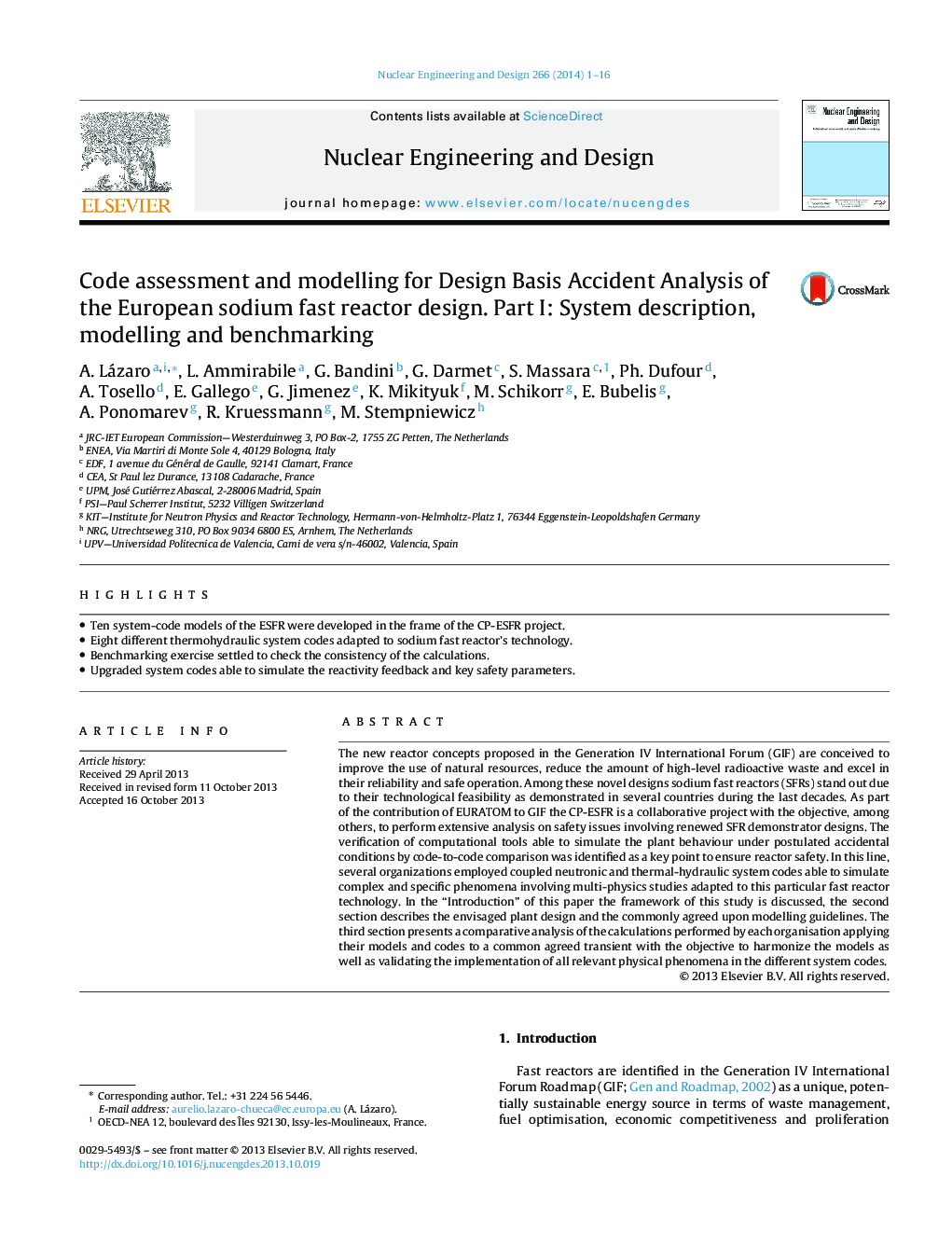| Article ID | Journal | Published Year | Pages | File Type |
|---|---|---|---|---|
| 296715 | Nuclear Engineering and Design | 2014 | 16 Pages |
•Ten system-code models of the ESFR were developed in the frame of the CP-ESFR project.•Eight different thermohydraulic system codes adapted to sodium fast reactor's technology.•Benchmarking exercise settled to check the consistency of the calculations.•Upgraded system codes able to simulate the reactivity feedback and key safety parameters.
The new reactor concepts proposed in the Generation IV International Forum (GIF) are conceived to improve the use of natural resources, reduce the amount of high-level radioactive waste and excel in their reliability and safe operation. Among these novel designs sodium fast reactors (SFRs) stand out due to their technological feasibility as demonstrated in several countries during the last decades. As part of the contribution of EURATOM to GIF the CP-ESFR is a collaborative project with the objective, among others, to perform extensive analysis on safety issues involving renewed SFR demonstrator designs. The verification of computational tools able to simulate the plant behaviour under postulated accidental conditions by code-to-code comparison was identified as a key point to ensure reactor safety. In this line, several organizations employed coupled neutronic and thermal-hydraulic system codes able to simulate complex and specific phenomena involving multi-physics studies adapted to this particular fast reactor technology. In the “Introduction” of this paper the framework of this study is discussed, the second section describes the envisaged plant design and the commonly agreed upon modelling guidelines. The third section presents a comparative analysis of the calculations performed by each organisation applying their models and codes to a common agreed transient with the objective to harmonize the models as well as validating the implementation of all relevant physical phenomena in the different system codes.
